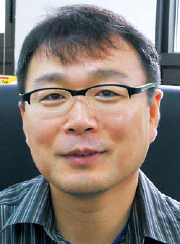Faced with a rapidly growing population of seniors, many countries in the West have opted for a significant delay in, or an outright abolishment of, compulsory retirement based on age.
Calls are growing here that Korea should follow suit to ensure a soft landing from the retirement of 7.12 million baby boomers.
Still, the government believes that the Korean situation is not ripe for such a drastic measure.
Calls are growing here that Korea should follow suit to ensure a soft landing from the retirement of 7.12 million baby boomers.
Still, the government believes that the Korean situation is not ripe for such a drastic measure.

“There is no public consensus on the issue,” Noh Kil-joon, a director at the Labor Ministry in charge of policy for senior workers, recently told The Korea Herald.
“Both employers and labor unions oppose the idea of forcing employers to delay retirement ages by law.”
The measure is feared to increase labor costs for employers, while reducing job openings for young job hunters, he explained.
In 2009, Korea enacted a law that prohibits discrimination based on age in employment and encourages employers to hire or retain more senior workers. However, that law stipulates age-based retirement practices as an exception and advises, not compels, employers to set the retirement age at 60 or later.
Instead of trying to tackle the traditional retirement practices at workplaces, the government is focusing on inducing a gradual phase-out of baby boomers through the “wage peak scheme,” Noh said.
The wage peak scheme refers to an incremental salary cut for senior workers in return for employment after they reach a certain age. For instance, a worker hitting a set retirement age may agree to a cut in his or her salary of 20 percent a year from its peak and in return for being guaranteed employment for two or three more years.
“An increasing number of workplaces are adopting the system, helped by the government’s cash incentives,” the official said.
Last year, about 12 percent of Korean firms with more than 100 workers had embraced the system, according to the ministry data. Back in 2006, when the government started giving incentives for the scheme, the figure was just 3.3 percent.
Over that period, the amount spent in incentives went up from 600 million won in 2006 to 7.9 billion won. This year, the ministry aims to provide 12.5 billion won.
“A revision to a related law is currently pending at the National Assembly, which, if passed, would expand the current incentive program,” the official said.
The focus of the ministry’s baby boomer policies is firstly ensuring a gradual exit of the baby boomers from their main job and secondly supporting them to find a new job once they retire.
“Baby boomer policies are being formulated by various ministries, but the top priority is on jobs,” Noh said, stressing that helping the boomers to continue working as long as they wish is the best solution.
By Lee Sun-young (milaya@heraldcorp.com)







![[Graphic News] More Koreans say they plan long-distance trips this year](http://res.heraldm.com/phpwas/restmb_idxmake.php?idx=644&simg=/content/image/2024/04/17/20240417050828_0.gif&u=)
![[KH Explains] Hyundai's full hybrid edge to pay off amid slow transition to pure EVs](http://res.heraldm.com/phpwas/restmb_idxmake.php?idx=644&simg=/content/image/2024/04/18/20240418050645_0.jpg&u=20240419100350)







![[KH Explains] Hyundai's full hybrid edge to pay off amid slow transition to pure EVs](http://res.heraldm.com/phpwas/restmb_idxmake.php?idx=652&simg=/content/image/2024/04/18/20240418050645_0.jpg&u=20240419100350)

![[Today’s K-pop] Illit drops debut single remix](http://res.heraldm.com/phpwas/restmb_idxmake.php?idx=642&simg=/content/image/2024/04/19/20240419050612_0.jpg&u=)